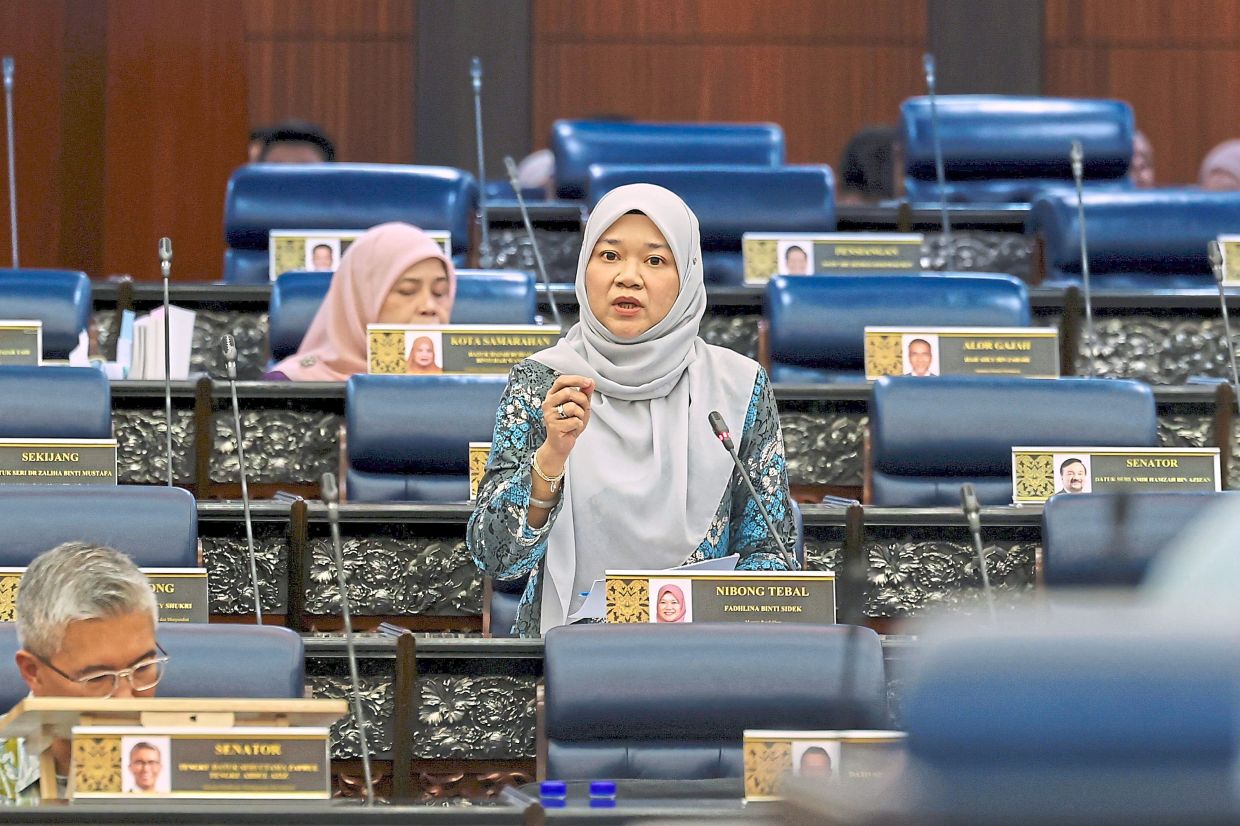KUALA LUMPUR: Five major reforms to school safety nationwide, covering both physical and mental aspects, are currently underway, says Education Minister Fadhlina Sidek (pic).
These reforms will include stricter enforcement of bans on dangerous items and enhanced student mental health and psychosocial support ecosystems, among others, in all 10,243 schools nationwide, she said.
Fadhlina also said the government will double the frequency of mental health screenings for school students to twice a year as part of immediate reforms aimed at enhancing their well-being.
She added the reinforced mental health support ecosystem for guidance and counselling teachers, and students in particular, has been prioritised by the ministry amid recent shocking crimes committed at schools.
“This includes immediate mental health strengthening programmes that will involve the Health Ministry and strategic partners in the mental health field,” she told the Dewan Rakyat during Minister Question Time yesterday.
She said a reproductive and social health education programme will also be implemented at schools to address and raise awareness on sexual violence against children.
Fadhlina said the programme aims to raise awareness of the issue and provide targeted interventions for students, guided by religious, moral and cultural values.
“These sessions will be implemented comprehensively, with adequate support for the school community, including child protection measures and adherence to existing laws
“The goal is to equip students with the knowledge and skills needed to make informed and responsible decisions in their daily lives,” she said.
Schools will also be directed to conduct spot checks more frequently to ensure no prohibited or dangerous items are brought onto school premises.
Other safety initiatives include an ongoing school physical safety audit of all schools nationwide by the ministry, of which 735 schools have already been checked.
She said the psychosocial support system for teachers will also be strengthened to ensure teachers’ well-being, especially when involved in situations requiring immediate support.
A review of standard operating procedures for bullying and sexual misconduct cases is also being conducted by the ministry, which includes improvements to the bullying complaint system and increased installations of CCTV in schools.
Fadhlina also said increased engagement sessions will be held with students, parents, teachers and school administrators, before child protection policies are implemented in schools.
“The ministry will also continuously and intensively evaluate the effectiveness of these efforts every 15 days,” she said.
She also said that a new subject, titled Character Education, will be implemented in the 2027 School Curriculum to better instil moral values and righteous thinking among students.
The subject will be first implemented at preschool levels beginning next year, as part of its 2026 preschool curriculum.
She was responding to a question from Salamiah Mohd Nor (PN-Temerloh) on the measures being taken to curb the recent spate of tragic accidents and crimes in schools.
Fadhlina also clarified that Education director-general Dr Mohd Azam Ahmad’s recent “sweep under the carpet” remark has been misunderstood and that he was not claiming that cases of bullying or sexual harassment were being covered up.
She said the remark was referring to school officials who had inadvertently viewed the cases as minor, leading to weaker intervention measures being taken.
“As a result of this perception, initial intervention taken might be light, which usually leads to the cases not being given their due attention.
“This then leads to us being unable to fully investigate or carry out interventions, leading some of the cases to persist, which results in even worse consequences later,” she added.
Fadhlina also said the Healthy Mind Screening programme, currently implemented across schools, will now be conducted twice annually to help identify early signs of depression or distress among students.
“From these reports, we can detect signs of depression or indicators that a child needs support and intervention.
“Such students will then be referred to the relevant authorities, including the Health Ministry,” she added.
She said this in response to Datuk Seri Jalaluddin Alias (BN-Jelebu), who cited Unicef’s Malaysian Youth Mental Health Index 2023 which revealed around 6% of youths experience severe depression.
Fadhlina stressed that psychiatric intervention efforts are already in place, but the government’s latest reform aims to further strengthen them through training and immediate intervention programmes.
“These immediate interventions must also be supported by parents, as they spend more time with their children at home.
“Schools only have six hours with them, so we need parents’ involvement to ensure children receive further treatment and the right ecosystem to support their mental health,” she added.

